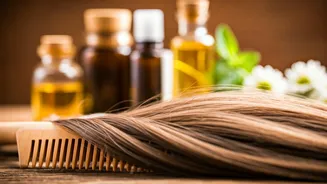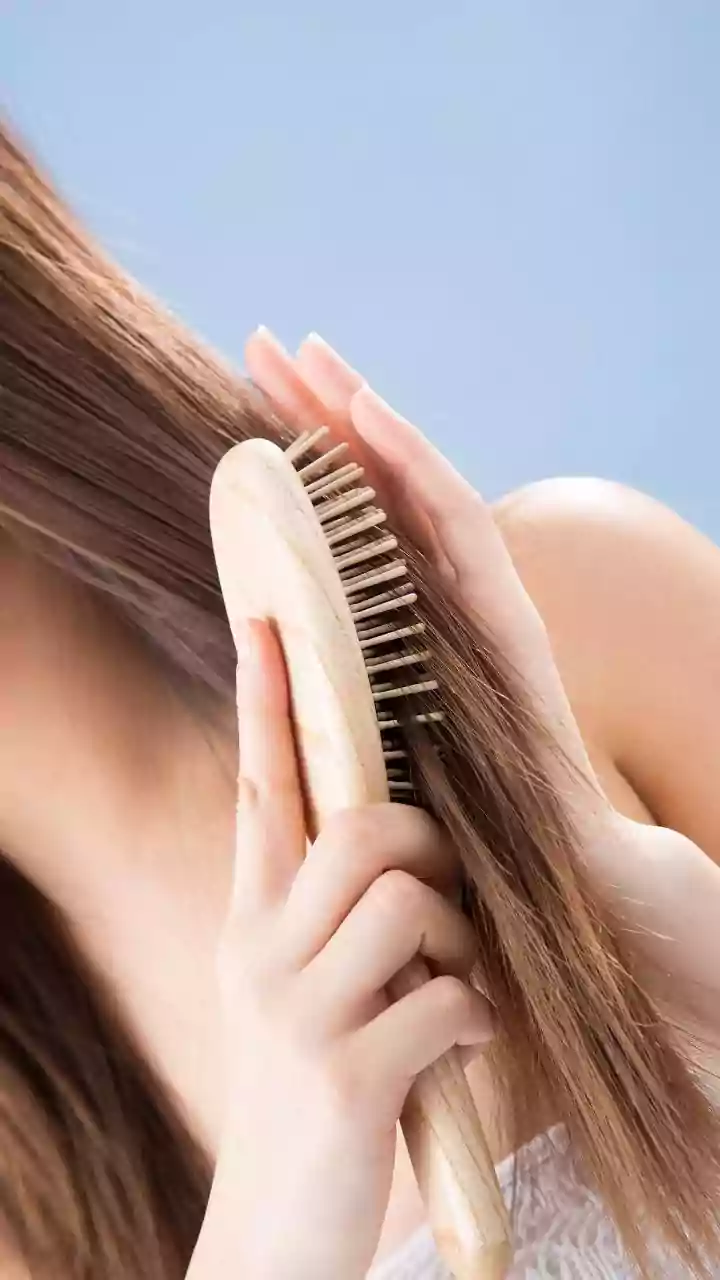Hair Growth Factors
Hair growth is a complex process influenced by various factors. Understanding these elements can help you adopt effective strategies for optimal hair health.
Genetics play a significant role; hair type, thickness, and growth rate are often inherited. However, lifestyle choices, including diet and stress levels, can also significantly impact hair growth. Nutritional deficiencies, such as iron or vitamin D, can lead to hair loss, highlighting the importance of a balanced diet. Moreover, hormonal changes, common during pregnancy or menopause, can affect hair growth cycles. Certain medical conditions and medications can also cause hair loss. Thus, a holistic approach that considers both internal and external factors is essential for fostering healthy hair.
Diet and Nutrition
What you eat directly affects your hair's health. A diet rich in essential nutrients is critical for promoting hair growth and strength. Proteins are the building blocks of hair, so ensure you consume enough protein-rich foods like lean meats, eggs, and legumes. Vitamins, especially biotin, are vital for hair health; foods like eggs, nuts, and sweet potatoes are excellent sources. Iron deficiency is a common cause of hair loss, so incorporating iron-rich foods such as spinach and lentils is important. Moreover, essential fatty acids, found in foods like salmon and flaxseeds, contribute to hair's shine and elasticity. A balanced diet not only supports hair growth but also improves overall health and well-being. Consider consulting with a nutritionist to ensure your diet meets your specific needs.
Hair Care Routine
Your daily hair care habits significantly impact hair health and growth. Proper care starts with gentle cleansing. Avoid harsh shampoos containing sulfates, which can strip your hair of its natural oils, leading to dryness and breakage. Instead, opt for shampoos designed for your hair type, whether it’s oily, dry, or normal. Conditioning is also essential, as it moisturizes and protects the hair shaft. Regular deep conditioning treatments can provide extra hydration and repair damage. Minimize the use of heat styling tools, such as hair dryers, straighteners, and curling irons, as they can cause significant damage. When using heat, always apply a heat protectant. Moreover, be gentle when brushing or combing your hair, and use a wide-tooth comb to detangle wet hair, as it is more vulnerable to breakage.
Stress Management
Stress can have a profound impact on hair growth. High-stress levels can disrupt the hair growth cycle, leading to hair loss. Chronic stress can trigger a condition called telogen effluvium, where a large number of hair follicles enter the resting phase, causing noticeable shedding. Finding effective ways to manage stress is crucial for maintaining healthy hair. Techniques such as meditation, yoga, and deep breathing exercises can help lower stress levels. Engaging in regular physical activity also has significant benefits; exercise releases endorphins, which have mood-boosting effects and can reduce stress. Furthermore, ensure you get enough sleep, as sleep deprivation can increase stress. Consider incorporating relaxation techniques like spending time in nature or listening to calming music into your daily routine to help minimize the effects of stress on your hair.
Topical Treatments
Various topical treatments can stimulate hair growth. Minoxidil, an over-the-counter medication, is a widely used and proven treatment for hair loss. It works by widening blood vessels in the scalp, increasing blood flow to hair follicles. Other treatments include shampoos and serums containing ingredients such as caffeine, biotin, and peptides, which can boost hair growth. Natural remedies, such as rosemary oil and peppermint oil, have also shown promise. These oils can improve blood circulation to the scalp, promoting hair growth. Always perform a patch test before using any new product to ensure you don't have an allergic reaction. Moreover, consult a dermatologist to get personalized recommendations and ensure the treatments are safe and appropriate for your specific needs and hair condition.
Lifestyle Adjustments
Certain lifestyle changes can support healthy hair growth. Protect your hair from sun exposure by wearing a hat or using hair products with UV protection. Avoid tight hairstyles, such as braids and ponytails, which can pull on the hair and cause damage. Limit the use of chemical treatments like perms and relaxers, as they can weaken the hair. Stay hydrated by drinking plenty of water, as hydration is essential for overall health, including hair health. Regular exercise improves blood circulation, which helps deliver nutrients to hair follicles. Finally, avoid smoking, as smoking can damage hair follicles and hinder hair growth. Incorporating these lifestyle adjustments into your routine can significantly improve the health and appearance of your hair.



















